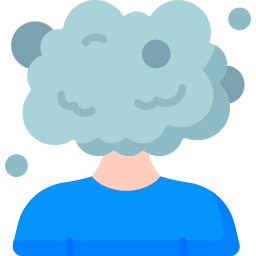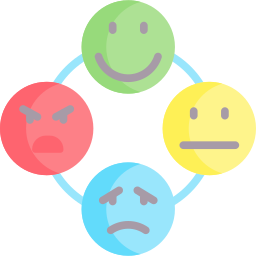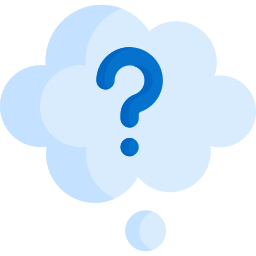GLOSSARY
D
Dedication
One of the three components of engagement, dedication is characterized by a sense of significance, enthusiasm, inspiration, pride, and challenge.


Delirium
An acute disorder of attention and cognition. Also referred to as acute confusional state.


Denial
An unconscious mental process that serves as a psychological barrier to either protect or defend the ego from external reality constructs. In some instances, it is viewed as an adaptive, healthy form of self-deception that offers the client time to (...)


Dépaysement
Pronounced, “dee-pace-mon”. A French term to describe the disoriented feeling that comes from being in a foreign or different place. ‘Pays’ translates to ‘country’ and ‘dépayser’ means ‘to disorientate’. Hence, some may refer to (...)


Depression
A kind of disorder which includes symptoms in mood, body, motivation and behavior area. The symptoms of this disorder are negative mood, loss of energy and interest, feeling of guilt, difficulty in concentration, reduction of appetite and thought of death and suicide.


Depressive Realism
The tendency for depressed individuals to make realistic inferences, and to do so to a greater extent than non-depressed individuals under certain circumstances.


Depressive Realism Hypothesis
The hypothesis that depressed individuals can make realistic inferences, but that they could do so to a greater extent than nondepressed individuals under certain circumstances.


Desire
An emotion directed to the attainment of some object from which pleasure or satisfaction is expected. Desire therefore has three elements critical to it: (1) an external object, (2) a feeling directed to the attainment of satisfaction from (...)


Despair
An emotional state characterized by the failure of hope and often triggered by the threat of death. Despair is often associated with hopelessness.


Disappointment
An emotion that arises upon appraisal of the consequences of one’s decisions. Like regret, disappointment is a ‘post-decisional emotion’. Disappointment is an emotion that arises when there is a perceived gap between the factual outcome with (...)


Discrete Emotions
Separate emotional states… (which) can be identified and differ not only in expression but in other important ways such as appraisal, antecedent events, behavioural responses and physiology. Discrete emotions also have to be in some way adaptive.


Disgust
Revulsion at the prospect of (oral) incorporation of an offensive object. The offensive objects are contaminants; that is, if they even briefly contact an acceptable food, they tend to render that food unacceptable.


Displacement
Displacement refers to altering the target of an impulse. For example, an unacceptable violent impulse toward one’s father might be transformed into a hostile attitude toward policemen or other authority figures.


Display Rules
Rules, norms, guidelines, and expectations that people learn to manage and modify emotional displays depending on social circumstances; the term explains how people of different cultures manage their displays of emotion, depending on context.


Dissonant Relationships
Interpersonal relationships that produce negative emotions, interpersonal discord, and sympathetic nervous system activation (e.g., fight or flight response).


Distress
A form of stress associated with negative feelings and disturbed bodily states. Distress is a stress response towards stimuli/targets appraised as harmful, threatening and challenging beyond one’s confidence and/or capability to overcome.


Dolce far niente
Pronounced, “doll-ceh-far-nien-teh”. An Italian term referring to the pleasure one gets from carefree idleness. ‘Dolce’ means ‘sweet’, ‘far(e)’ means ‘do’, and ‘niete’ means ‘nothing’. Hence, it literally translates to the sweetness of doing nothing.


Dopamine
A neurotransmitter released from the ventral tegmental area in the midbrain primarily involved in reward, motivation, addiction & movement behaviour


Doubt
An emotion experienced when one’s truth judgments (propositions considered to be true) include equal degrees of belief and disbelief. One’s truth judgments is dependent on probability, credibility and plausibility of the propositions.


Duchenne Smile
An indicator of a genuine smile or true enjoyment. Smiles with Duchenne’s marker (i.e., the presence of orbicularis oculi activity) have been more often associated with the experience of positive emotions (e.g., amusement) in comparison with other forms of smiling.


Dysthymia
A chronic depressive disorder, characterized by functional impairment and at least 2 years of depressive symptoms.


